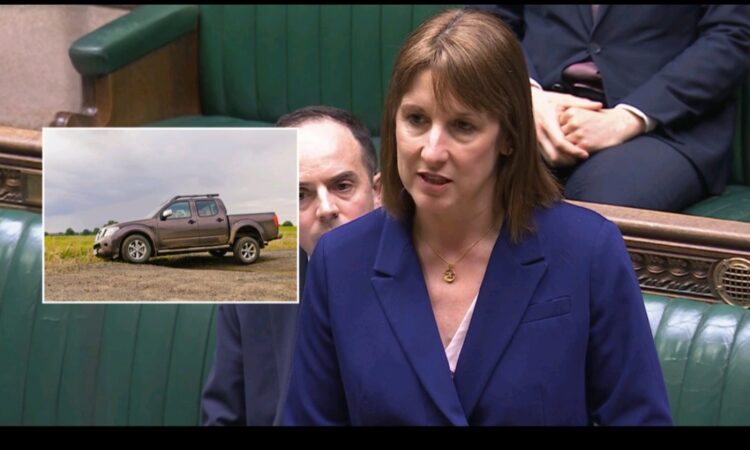
Rachel Reeves is facing criticism after new tax rules came into effect that could make owning and using double cab pick-up trucks much more expensive. Critics say these changes will especially hurt people who rely on these vehicles for work, such as farmers, tradespeople, and others living in rural areas.
The changes officially started on April 6, 2025. Under the new rules, double cab pick-up trucks will now be treated as cars instead of vans when it comes to tax. This change means drivers could face much higher taxes, especially those using the vehicles as company cars. Electric double cab pick-ups that weigh more than one tonne are also now subject to Benefit-in-Kind (BiK) tax rates for the first time. These BiK rates now range from as low as three percent to as high as 39 percent, depending on the vehicle.
Tim Bonner, the chief executive of the Countryside Alliance, spoke out against the change. He said that many working people depend on these trucks, calling them the country’s “favourite workhorse.” He warned that the new classification will hit people in the countryside the hardest, including farmers, builders, gamekeepers, and plumbers.
Before the change, tax rules followed VAT guidelines. Under that system, a double cab pick-up was only treated as a car if it had a payload under one tonne. Anything above that was considered a van. But now HMRC has changed how it interprets these vehicles for tax purposes. Instead of just looking at payload, they are looking at the full design of the vehicle to see if it is mainly suited to carry people or goods. Vehicles like the Toyota Hilux, which used to be taxed more lightly, will now fall into a higher tax bracket.
For example, the Toyota Hilux 2.8 D-4D Invincible, which costs £41,960 and produces 233g/km of CO2, will now fall under the 37 percent BiK tax rate. That means the yearly tax could jump from £3,960 to £15,525—a huge increase for anyone using it as a company vehicle.
HMRC explained that vehicles will now be classified as cars if they have a front passenger cab with a second row of seats that can carry four passengers, plus the driver. The vehicle also needs to have four doors and an uncovered pick-up space behind the cab. Because many of these trucks are designed to carry both passengers and cargo, HMRC says they can’t be classed as primarily one or the other.
Earlier this year, a petition was started asking the government to reverse this decision. Many drivers and business owners are upset and worried about the rising costs. The petition argues that these trucks are essential for rural work, often used to carry heavy equipment and travel through rough terrain. It says the new rules unfairly ignore their commercial use and could hurt businesses that rely on them.
The petition is open until May 29. If it gets 10,000 signatures, the government must respond. If it reaches 100,000 signatures, it will be debated in Parliament.




